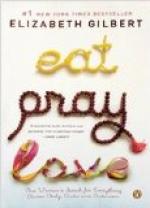The little snake-killer made a spring at him, and then skilfully whirled himself around so that the snake could not bite him. Dinky knew what he was about all the time; and though his foe struck at him several times, he dodged him and put in several bites. After considerable manoeuvring, the snake appeared to have had enough of it, and deemed it prudent to beat a retreat. He dropped on the ground, and headed for a thicket; but this was just what Dinky wanted. He sprang upon the neck of the cobra, placing his fore-paws on him, and then crushed his spine with his sharp teeth. The serpent was dead, after writhing an instant.
The fight was ended, and Khayrat caressed the victor. Louis declared that the mongoose was a friend worth having, and immediately made a bargain with the huntsman to procure him a couple of them, and send them to Calcutta. They returned to the palace; and at the breakfast-table Louis told the story of the battle, in which all the Americans were much interested. But the business of the forenoon was the great Sowari, or public procession; and the party were conveyed in carriages to the pavilion, from the veranda of which they were to see the spectacle. An abundance of easy-chairs was provided for them, and they were made very comfortable.
It required more than an hour for the procession to pass the point of observation; and when the last of it had disappeared in the distance all the Americans declared that they had never seen anything, even in Europe, which could be compared with it in variety and magnificence. It was an Oriental spectacle, and the tourists could easily believe they had witnessed a pageant that had stepped out of the pages of the “Arabian Nights.”
First came the regular soldiers of the Maharajah, who were sepoys, all under the command of English officers; and they marched like veterans who had been drilling half their lives. They were followed by a company of Arabs, who seemed to have been imported for the occasion. Sir Modava explained what the troops were as they passed. Next came a whole squadron of Mahratta cavalry, which looked as though they were serviceable soldiers of that arm, for they were good riders, well mounted, and were all lusty fellows.
After the cavalry came a troop of dromedaries with small cannons mounted on their backs, with gunners to work the pieces. The military portion of the procession was completed by several regiments of the Guicowar’s special army. Following the household troops, apparently acting as an escort, came the royal standard-bearer, a personage of decided importance in an Oriental pageant. He was mounted alone on a huge elephant, magnificently caparisoned and adorned with the royal standard, a flag of cloth-of-gold, on a long staff.
In front of the elephant marched a band of eighteen or twenty native musicians, playing upon all sorts of Indian instruments, including tom-toms, lutes, like flageolets, cymbals, and horns. Surrounding the great beast that had the honor to bear the flag of the Mahratta States were numerous horsemen, all clothed in the richest Oriental costumes, armed with spears and curved sabres, with shining shields, and steel gauntlets on their hands. All these, and all the others, wore white turbans, picturesquely folded.




